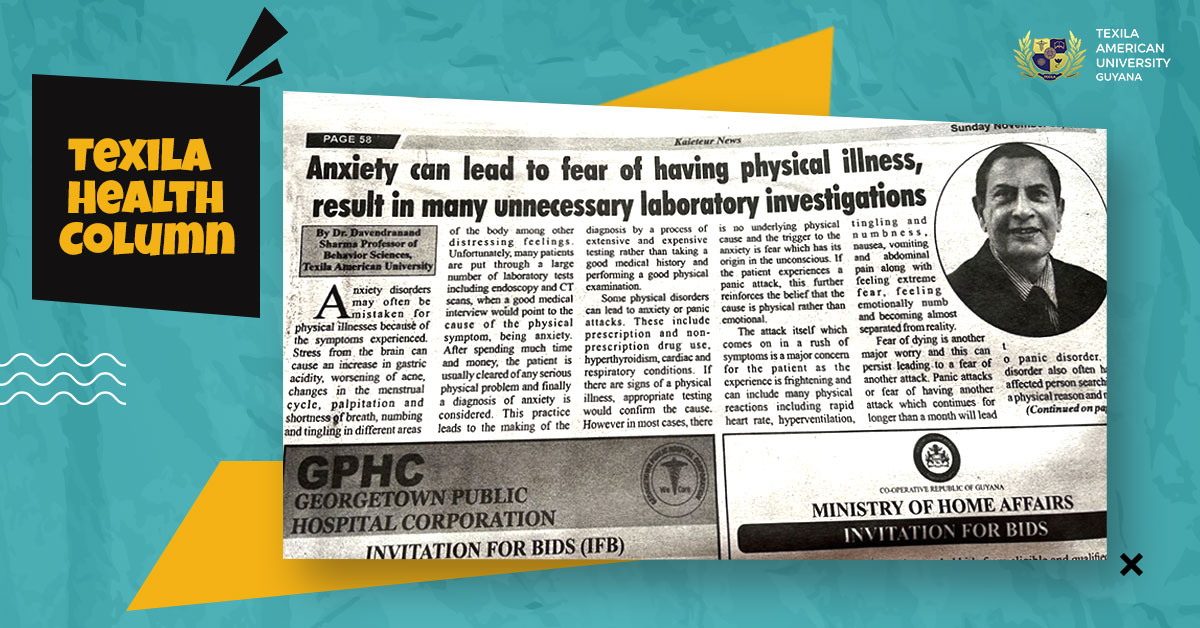Anxiety can lead to fear of having a physical illness, resulting in many unnecessary laboratory investigations.
By Dr. Davendranand Sharma
Professor of Behavior Sciences, Texila American University
Source : Kaieteur News
Anxiety disorders may often be mistaken for physical illnesses because of the symptoms experienced. Stress from the brain can cause an increase in gastric acidity, worsening of acne, changes in the menstrual cycle, palpitation and shortness of breath, and numbing and tingling in different areas of the body, among other distressing feelings. Unfortunately, many patients are put through a large number of laboratory tests, including endoscopy and CT scans, when an excellent medical interview would point to the cause of the physical symptom, anxiety. After spending much time and money, the patient is usually cleared of any serious physical problem, and finally, a diagnosis of anxiety is considered.
This practice leads to the making of the diagnosis by the process of extensive and expensive testing rather than taking a good medical history and performing a good physical examination. Some physical disorders can lead to anxiety or panic attacks. These include prescription and non-prescription drug use, hyperthyroidism, and cardiac and respiratory conditions. If there are signs of a physical illness, appropriate testing would confirm the cause. However, in most cases, there is no underlying physical cause, and the trigger of anxiety is fear which has its origin in the unconscious. If the patient experiences a panic attack, this further reinforces the belief that the cause is physical rather than emotional.
The attack itself, which comes on in a rush of symptoms, is a major concern for the patient as the experience is frightening and can include many physical reactions, including rapid heart rate, hyperventilation, tingling and numbness, nausea, vomiting, abdominal pain along with feeling extreme fear, feeling emotionally numb and becoming almost separated from reality. Fear of dying is another major worry, and this can persist, leading to a fear of another attack. Panic attacks or fear of having another attack that continues for longer than a month will lead to panic disorder.
This disorder also often has the affected person searching for a physical reason and may lead to multiple doctor visits with multiple tests. Minor alterations in laboratory results can cause the patient to believe that an undetected medical condition is present, and another round of testing and doctor visits ensues. Anxiety and panic attacks are treated very effectively with modern non-addictive short, acting medications and, if done with good patient education and therapy, should prevent anxiety from progressing to a panic disorder or for the patient to become fixated that a rare medical disorder is present, which the doctor was unable to detect. It then becomes more difficult for the physician or therapist to change the patient’s belief system that the cause of the stomach upset or other physical problems are in the brain and not because of some disease in the body.












